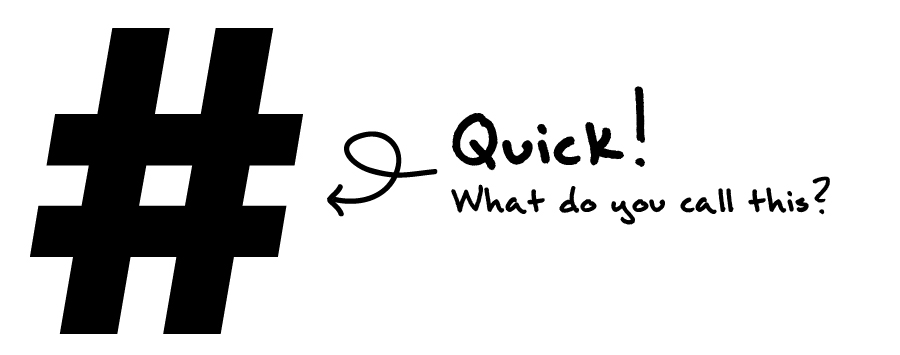If you routinely hashtag, you may fully disagree with this post. I understand, and that is your choice. Still, let me explain why I don't use them on social media (as well as the Facebook "like" button or Twitter "@," but those are different posts).
Coherence:
You are reading this sentence in your normal voice. #nowyourereadingitinalowmonotoneandfastvoice.
See how that broke up the flow? When a person reads something internally and it's peppered with hashtags, it is less coherent and harder to follow. In writing, I try to write as if I was speaking out loud - then I am more well-rehearsed in coherent conversation when I do. Keep this change of tone in mind as you read the rest.
Credibility: I have a few friends well-versed in communication and promotion - they know how to utilize social media, and they can get away with #hashtagsoneverything #andstill #itmakessense. For the other 90% of the symbol's manipulators, it juices the serious tone out of whatever you just said.
My skills in marketing and interpersonal relations have been honed by twenty years of service experience in a developing company. I strive to be resourceful and professional in each task. #hireme
Practicality: Originally, the hashtag was invented for Twitter usage to group posts by topic - then, someone could search a "trending" news item and see them more clearly organized. It quickly lost this function, however, and people started thinking of it as a dress-up function for their updates.
This is what I have to say, and because I'm one of these people, I'm #hashtaggingendsofeverysentence.
So then Facebook users started doing it. Sorry guys, it doesn't work. Oh wait. They MADE it work. In most cases, though, it ends up being word clutter, and harder to see the real meaning. #excessive #redundant #superfluous
Literary Technique: Some might aver that hashtags are their own literary form of writing - you express something and add a few more ideas at the end. #context #justforkicks. Still, social media followers are reading this in their heads over and over, and then it turns into speech in real life - ergo the song "#SELFIE."
Could we just show culture what it means to converse meaningfully? If you have a thought, presenting it in a way that conveys a direct message instead of #together #adding #stringing #ideas #order #in #random.
 Happy 60th Birthday to my dad! I thank God every day for your example of sacrifice and love in my life. Your appreciation of books, patience with my parking skills, and Scrabble wits inspire me to learn. Enjoy the cake!
Happy 60th Birthday to my dad! I thank God every day for your example of sacrifice and love in my life. Your appreciation of books, patience with my parking skills, and Scrabble wits inspire me to learn. Enjoy the cake!Happy birthday, Dad! #60 #example #Scrabble #literary #hetakesthecake
Disambiguation: Before the hashtag, the symbol indicated other extremely common things, such as pounds, numbers, or to the entire world of music, SHARPS. Now, children learning to play tic-tac-toe or music students playing C# Major pieces in an atonal key signature are quite confused. Well, we were there first.
Finally, there's something I need to get off my chest.
#isasharp #7thinharmonicminor #6thinmelodic #impliescontinuosecondarydominant #musicaficta
Whew. You know, maybe the musicians need to start a trending discussion using flat symbols. Then everything would be natural again.



